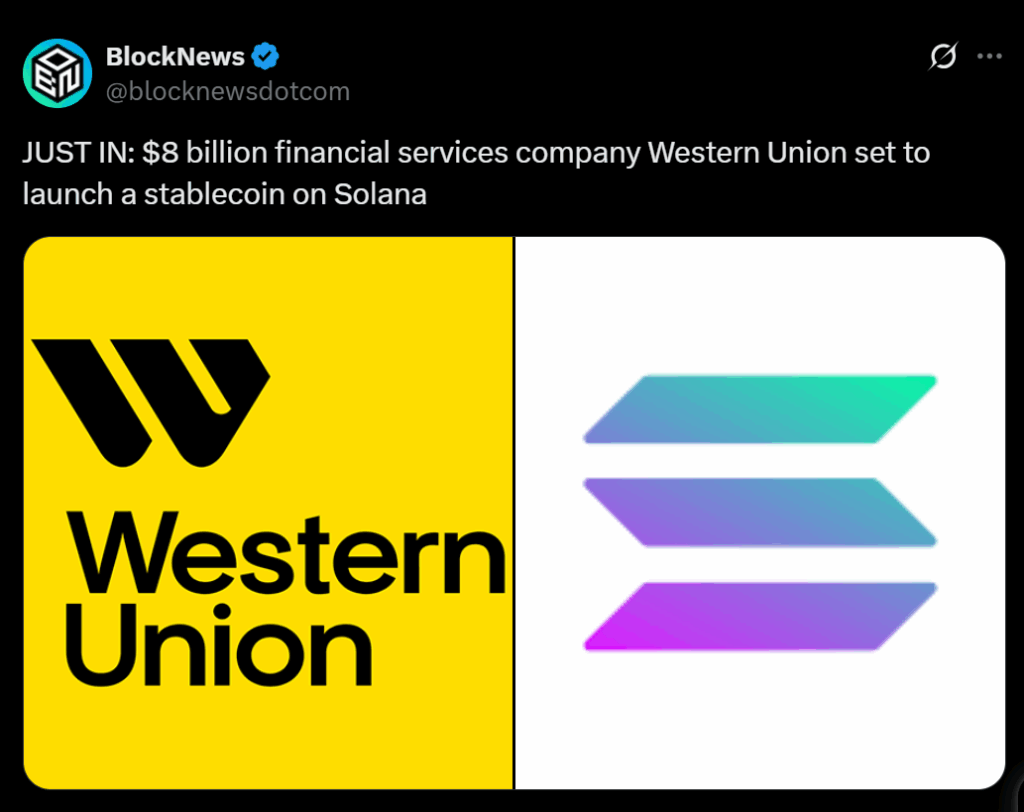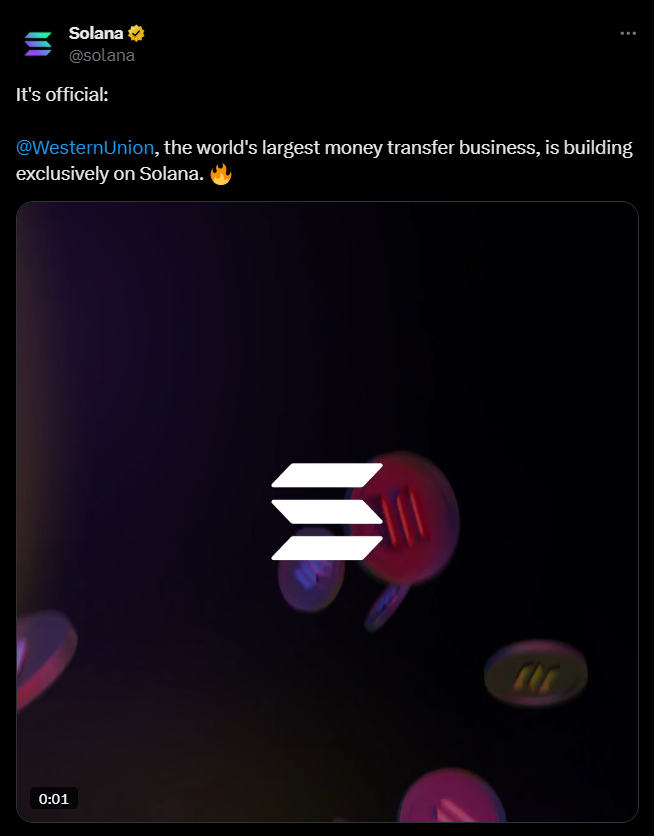- Western Union will launch a U.S. dollar stablecoin on Solana to streamline remittances.
- Solana offers ultra-fast, low-cost settlement, key for consumer remittance markets.
- The move marks a major step toward mainstream stablecoin adoption — here is why it could change the way money moves globally.
Western Union is officially entering the crypto payments arena with plans to launch a U.S.-dollar stablecoin on the Solana blockchain, according to a report from The Wall Street Journal. The initiative aims to modernize cross-border money transfers by leveraging blockchain’s efficiency and Solana’s lightning-fast transaction speeds. The stablecoin will power Western Union’s retail remittance network, reducing settlement costs while improving transaction speed and transparency.

Why Solana Is the Chosen Network
Solana’s appeal lies in its ability to finalize transactions in under a second, with fees costing fractions of a cent — ideal for a product serving global remittance users. In markets where transferring $200 can still cost up to 7%, routing payments through Solana could significantly cut costs. Moreover, the network’s robust liquidity and active developer ecosystem give Western Union access to established wallets, exchanges, and on/off-ramps on day one.
Stablecoin Momentum Fuels the Move
The timing couldn’t be better. The global stablecoin market surpassed $250 billion in 2025, driven by regulatory clarity and widespread adoption for payments. By entering this segment, Western Union combines brand trust and compliance strength with crypto-native innovation — a move that could accelerate stablecoin use in real-world finance. Analysts expect phased rollouts with KYC-verified wallets, reserve transparency, and limited regional corridors to start.

What to Watch Next
Western Union’s Solana-based stablecoin could reshape remittances if it achieves even modest fee reductions compared to traditional banking and card networks. The company’s global compliance infrastructure gives it an advantage over smaller crypto firms, but execution will depend on user experience and reliable cash-out systems. Competitors like Tether, Circle, and fintech newcomers are also racing to dominate the same space, setting up a pivotal year for blockchain














